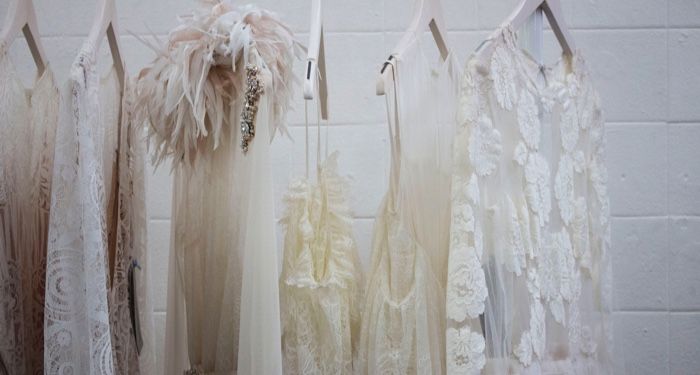
5 Great Poems About Clothing
April is National Poetry Month! Clothes are part of life. We wear them for comfort and warmth. We wear them to make a statement. We mend them. We burn them. We find emotional connection to them. This is also how we connect with poetry. The following poems focus on clothing, what it can mean and what it is worth.
“Derrick Poem (The Lost World)” by Terrance Hayes
This is a poem about sneakers. It’s also a poem about friendship. It’s also a poem about race. One way friends and lovers bond is through a common style and sharing clothes that mean something. The poem starts out with a hot tip about the latest kicks and how the “Avengers are too flashy” and the speaker buys a different style with the “dough [he] was supposed to use to pay / the light bill.” The friendship gets strained when the speaker shows up to the basketball court with a girl “in [his] shorts & white skin” and feels like he’s betraying his friend.
For more from Hayes, read Sonnets for My Past and Future Assassin.
“Duality” by Tina Chang
At first, this poem doesn’t seem to involve any kind of clothing. Then the middle stanza introduces a quick purchase on a whim: “I walk the streets of Brooklyn looking / at this storefront and that, buy a pair of shoes / I can’t afford, pumps from London, pointed / at the tip and heartbreakingly high, hear / my new heels clicking, crushing the legs / of my shadow.” The shoes become a source of power and confidence. Gradually, the poem moves into how that mindset can deal with and sometimes cover up pain.
For more from Chang, read Hybrida.
“Upon Julia’s Clothes” by Robert Herrick
From the pages of Early British Literature emerges a poem of praise for lovely, beautiful Julia. Herrick has a series of poems devoted to Julia and everything about her. Here, the speaker worships Julia’s clothes. In essence, they mesmerize him: “O how that glittering taketh me!”
For more from Herrick, read Hesperides and Other Poems.
“For A Daughter Who Leaves” by Janice Mirikitani
This poem begins with an epigraph that reads, “More than gems in my comb box shaped by the God of the Sea, I prize you my daughter…” by the Lady Otomo, 8th century, Japan. That sets the tone of reverence and gravity for what unfolds — a glimpse at the relationship between a mother and a daughter. The poem unfolds with the intricate craft of sound repetition: “A woman weaves” and “The mother weeps.” The “ee” sound follows in talking about feet as the mother “weaves / her daughter’s wedding /slippers that will carry / her steps into a new life.” The poem shows the difficulty in letting go as well as the pride in having a daughter who “grew, legs strong / body long, mind / independent.”
For more from Mirkitani, read Shedding Silence.
“Father’s Old Blue Cardigan” by Anne Carson
This poem gets me every time I read it. My dad had an old terrycloth bathrobe, also blue, and I feel every line of this poem. Here, the speaker describes her dad’s cardigan as it “hangs on the back of the kitchen chair.” Then she describes how she “put it on whenever [she] come[s] in.” The poem then goes back in time to when her father was alive and the moment she allows herself to realize he’s not going to be fine. In the middle of summer, he wears the cardigan outside, not realizing it’s the wrong time of year. Her moving narrative is elegant and lovely.
For more from Carson, read Autobiography of Red.
If you think about your favorite jeans or that one hat you’ve had for years and can’t live without, think about the poetry that can come from that connection. Head on over to Book Riot’s extensive poetry archive for more poems to celebrate National Poetry Month.











